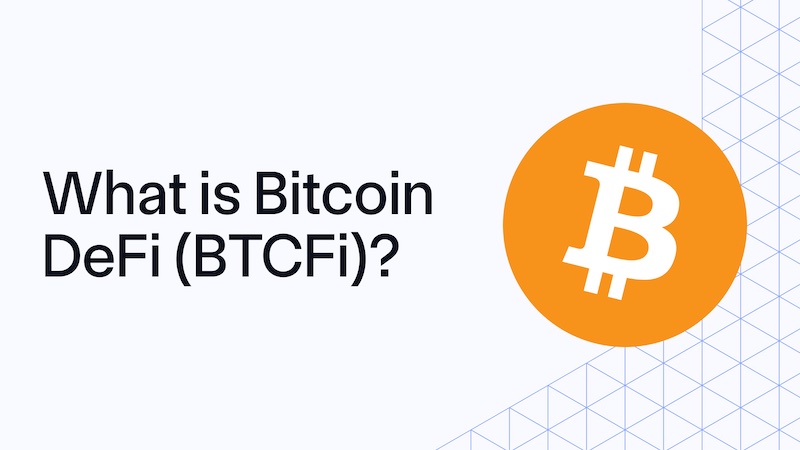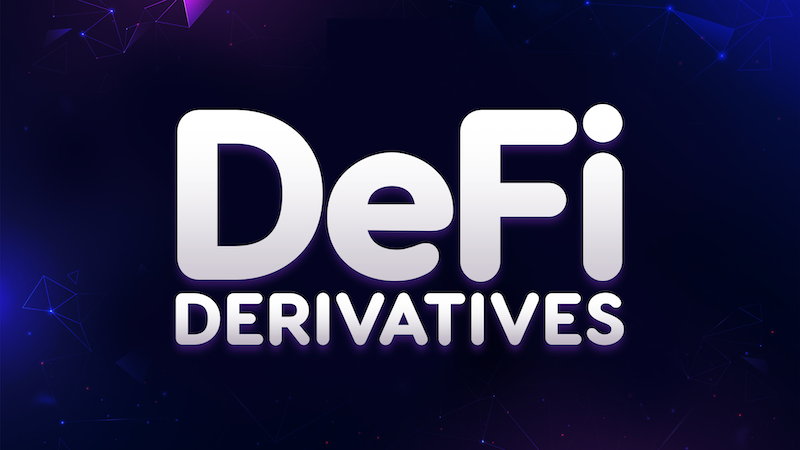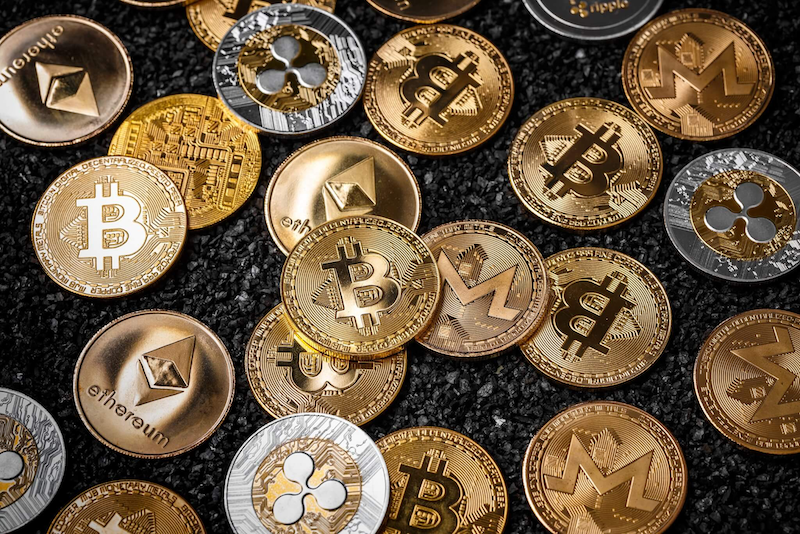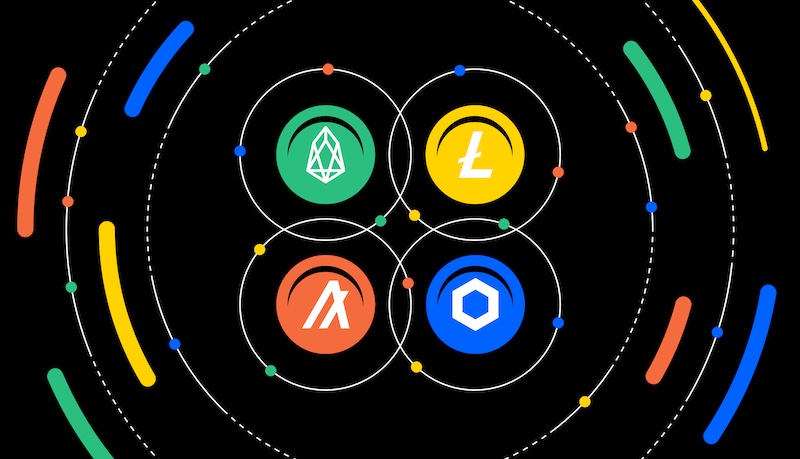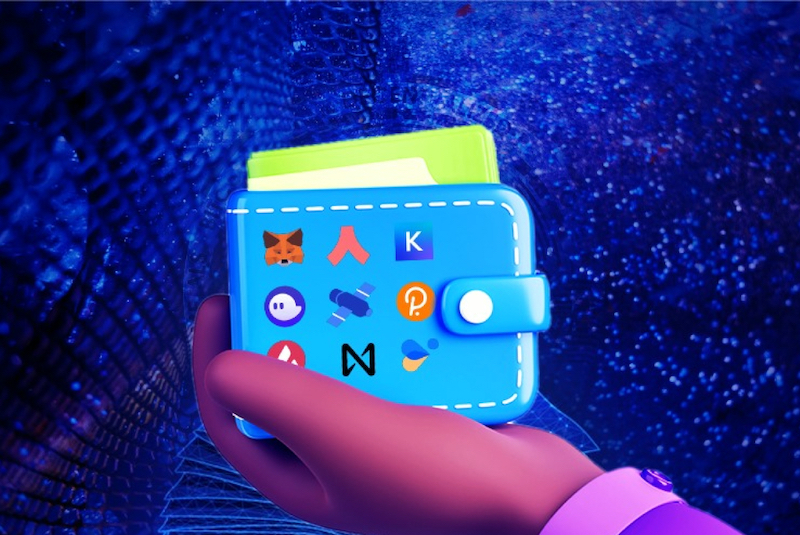Discover the top 17 DeFi wallets for 2025! Compare MetaMask, Trust Wallet, Ledger, and more for security, multi-chain support, and DeFi integration.
Introduction: Navigating the World of DeFi Wallets in 2025
Decentralized Finance (DeFi) continues to reshape the financial landscape, with a projected total value locked (TVL) of $700 billion by the end of 2025. DeFi wallets are essential tools for interacting with decentralized applications (dApps), managing crypto assets, and engaging in activities like staking, yield farming, and token swaps. Unlike traditional wallets, DeFi wallets prioritize user control, security, and seamless integration with Web3 ecosystems.
This guide ranks the top 17 DeFi wallets for 2025, evaluating them based on security, supported blockchains, user experience, and DeFi-specific features like dApp integration and staking. Whether you’re a beginner or a seasoned investor, find the perfect wallet to secure and grow your digital assets.
Key Takeaways
- DeFi Wallets Defined: Non-custodial wallets that enable users to store, manage, and interact with DeFi protocols, dApps, and NFTs while retaining control over private keys.
- Security is Paramount: Top wallets like Ledger and Zengo use advanced encryption, MPC cryptography, or offline storage to protect assets.
- Multi-Chain Support: Wallets like MetaMask and Trust Wallet support multiple blockchains (e.g., Ethereum, Solana, BNB Chain) for versatile DeFi interactions.
- User-Friendly Options: Argent and Coinbase Wallet offer intuitive interfaces, ideal for beginners exploring DeFi.
- DeFi Integration: Wallets like Phantom and Best Wallet provide built-in dApp browsers and DEX aggregators for seamless trading and yield farming.
- Risk Awareness: Hot wallets face phishing and malware risks, while hardware wallets like Trezor offer superior security for long-term storage.
What Are DeFi Wallets?
DeFi wallets are non-custodial tools that allow users to manage cryptocurrencies, interact with dApps, and participate in DeFi protocols like Uniswap, Aave, or PancakeSwap. Unlike custodial wallets (e.g., exchange wallets), DeFi wallets give users full control over their private keys, ensuring autonomy and security. They support activities such as:
- Token Swaps: Trading assets via decentralized exchanges (DEXs).
- Staking and Yield Farming: Earning rewards by locking assets in DeFi protocols.
- NFT Management: Storing and trading non-fungible tokens.
- dApp Interaction: Connecting to Web3 platforms for lending, borrowing, or governance.
Types of DeFi Wallets:
- Hot Wallets: Software wallets (e.g., MetaMask, Trust Wallet) connected to the internet, ideal for active trading.
- Cold Wallets: Hardware wallets (e.g., Ledger, Trezor) for offline storage, offering maximum security.
- Browser Extensions: Wallets like MetaMask or Rabby, integrated into browsers for quick dApp access.
- Mobile Wallets: Apps like Zengo or Phantom, designed for on-the-go DeFi management.
Top 17 DeFi Wallets for 2025
Below is a curated list of the top 17 DeFi wallets for 2025, based on security, multi-chain support, user experience, and DeFi-specific features. Each wallet is evaluated for its strengths, ideal use case, and supported platforms.
1. MetaMask – Best for Ethereum and Web3 Integration
Why MetaMask?
MetaMask, developed by ConsenSys, is the gold standard for DeFi, with over 100 million users. It supports Ethereum, Polygon, BNB Chain, Avalanche, and more via custom RPC settings.
Key Features:
- Browser extension and mobile app for seamless dApp access (e.g., Uniswap, OpenSea).
- MetaMask Swaps aggregates DEXs for optimal trading rates.
- Supports ERC-20 tokens and NFTs.
- Open-source with Snaps for custom functionality.
Pros: User-friendly, multi-chain, extensive dApp support.
Cons: Complex for beginners; no Bitcoin support.
Best For: DeFi enthusiasts and NFT traders.
Platforms: Browser, iOS, Android.
2. Trust Wallet – Best for Multi-Chain Versatility
Why Trust Wallet?
Backed by Binance, Trust Wallet supports over 100 blockchains, including Ethereum, Solana, and BNB Chain, with a built-in dApp browser.
Key Features:
- Supports 1,000+ tokens, staking, and NFT management.
- Biometric authentication and encrypted backups.
- Direct crypto purchases with fiat via third-party providers.
Pros: Beginner-friendly, privacy-focused (no KYC), versatile.
Cons: Lacks 2FA via authenticator apps; tied to Binance.
Best For: Multi-chain traders and dApp browsers.
Platforms: iOS, Android.
3. Ledger Nano X – Best for Hardware Security
Why Ledger Nano X?
Ledger Nano X is a premium hardware wallet with Bluetooth, supporting over 1,800 cryptocurrencies and DeFi integrations via Ledger Live.
Key Features:
- Secure Element Chip (CC EAL5+) for top-tier security.
- Integrates with MetaMask and Trust Wallet for DeFi access.
- Supports Bitcoin, Ethereum, Solana, and NFTs.
Pros: Offline storage, multi-chain, DeFi/NFT support.
Cons: Costs $149; 2020 data breach concerns.
Best For: Long-term investors prioritizing security.
Platforms: Desktop, iOS, Android (via Ledger Live).
4. Zengo – Best for Seedless Security
Why Zengo?
Zengo uses Multi-Party Computation (MPC) cryptography, eliminating seed phrases for enhanced security.
Key Features:
- Supports Ethereum, Bitcoin, and ERC-20 tokens.
- Biometric authentication and 3FA (face scan, email, recovery file).
- DeFi integration with Aave and Compound.
Pros: No seed phrase vulnerabilities; beginner-friendly.
Cons: Limited blockchain support (no Polkadot, Bitcoin Cash).
Best For: Security-conscious beginners.
Platforms: iOS, Android.
5. Phantom Wallet – Best for Solana DeFi
Why Phantom?
Phantom is the leading wallet for Solana, with support for Ethereum, Bitcoin, and Polygon. It’s known for NFT and staking integration.
Key Features:
- Built-in scam detection and security audits by Kudelski.
- Solana staking with ~6.88% APY.
- Cross-Chain Swapper for multi-chain trades.
Pros: User-friendly, secure, NFT-focused.
Cons: Limited non-Solana features.
Best For: Solana DeFi and NFT enthusiasts.
Platforms: Browser, iOS, Android.
6. Coinbase Wallet – Best for Beginners
Why Coinbase Wallet?
A non-custodial wallet by Coinbase, it integrates with the Coinbase exchange and supports 10+ blockchains.
Key Features:
- Supports Ethereum, Polygon, Avalanche, and ERC-20 tokens.
- Built-in dApp browser and DEX integration.
- Ledger compatibility for cold storage.
Pros: Easy to use, reliable customer support.
Cons: Limited blockchain support; tied to centralized exchange.
Best For: Newcomers to DeFi.
Platforms: Browser, iOS, Android.
7. Argent – Best for User-Friendly DeFi
Why Argent?
Argent simplifies DeFi with a seedless, mobile-first wallet for Ethereum and Starknet.
Key Features:
- Gasless transactions and social recovery.
- Integrates with Aave, Lido, and Yearn.finance.
- Multi-sig and biometric security.
Pros: Beginner-friendly, secure, no seed phrase.
Cons: Ethereum-focused; limited chain support.
Best For: DeFi newbies on Ethereum.
Platforms: iOS, Android.
8. Best Wallet – Best for Privacy
Why Best Wallet?
Best Wallet prioritizes anonymity with no KYC and supports 1,000+ tokens across 60+ blockchains.
Key Features:
- Built-in DEX aggregator and staking.
- $BEST token offers lower fees and early project access.
- Biometric authentication and encrypted keys.
Pros: Privacy-focused, multi-chain, user-friendly.
Cons: Newer wallet, less battle-tested.
Best For: Privacy-conscious traders.
Platforms: iOS, Android, Desktop.
9. Trezor Model T – Best for Touchscreen Security
Why Trezor Model T?
Trezor’s premium hardware wallet with a touchscreen supports over 1,800 assets and DeFi integrations.
Key Features:
- Shamir Backup for recovery security.
- Integrates with MetaMask for DeFi access.
- Supports Bitcoin, Ethereum, and Solana.
Pros: Secure, user-friendly touchscreen, open-source.
Cons: Costs $179; less portable than Ledger.
Best For: Security-focused DeFi users.
Platforms: Desktop, iOS, Android (via Trezor Suite).
10. Rabby – Best for dApp Security
Why Rabby?
Rabby, a newer wallet, offers pre-transaction risk scanning and auto blockchain selection for dApps.
Key Features:
- Supports Ethereum, Polygon, BNB Chain, and more.
- Scam detection and transaction simulation.
- Integrates with DeFi protocols like Uniswap.
Pros: Enhanced security, intuitive interface.
Cons: No staking; mobile app performance issues.
Best For: dApp-focused users.
Platforms: Browser, iOS, Android.
11. Binance Web3 Wallet – Best for Binance Ecosystem
Why Binance Web3 Wallet?
A non-custodial wallet integrated with Binance’s ecosystem, ideal for BNB Chain DeFi.
Key Features:
- MPC cryptography for secure key management.
- Built-in dApp browser and DEX integration.
- Supports BNB Chain, Ethereum, and more.
Pros: Seamless Binance integration, secure.
Cons: Centralized association concerns.
Best For: Binance DeFi users.
Platforms: iOS, Android.
12. Exodus – Best for Multi-Asset Management
Why Exodus?
Exodus supports multiple blockchains and offers a sleek interface for DeFi and NFT management.
Key Features:
- Supports Bitcoin, Ethereum, Solana, and 1,000+ assets.
- Built-in exchange and staking options.
- Integrates with Trezor for cold storage.
Pros: User-friendly, multi-chain, commission-free swaps.
Cons: Higher fiat-to-crypto fees.
Best For: Multi-asset DeFi traders.
Platforms: Desktop, Browser, iOS, Android.
13. Guarda Wallet – Best for Versatility
Why Guarda?
Guarda supports over 400,000 cryptocurrencies and integrates with DeFi platforms.
Key Features:
- Supports Ethereum, BNB Chain, and more.
- Staking and token swap features.
- Multi-platform access (desktop, mobile, browser).
Pros: Wide asset support, user-friendly.
Cons: No NFT support; high fiat fees.
Best For: Versatile DeFi users.
Platforms: Desktop, Browser, iOS, Android.
14. Crypto.com DeFi Wallet – Best for Yield Farming
Why Crypto.com DeFi Wallet?
A non-custodial wallet designed for DeFi, with strong yield farming and staking features.
Key Features:
- Supports Ethereum, Cronos, and ERC-20 tokens.
- Integrates with Aave, Yearn.finance, and DEXs.
- MPC-based key management.
Pros: Yield-focused, secure, user-friendly.
Cons: Limited blockchain support.
Best For: Yield farmers.
Platforms: iOS, Android.
15. ELLIPAL Titan 2.0 – Best for Air-Gapped Security
Why ELLIPAL Titan 2.0?
An air-gapped hardware wallet using QR codes for transactions, ideal for secure DeFi storage.
Key Features:
- Supports Bitcoin, Ethereum, Solana, and more.
- No USB/Bluetooth for maximum security.
- DeFi integration via ELLIPAL app.
Pros: Top-tier security, multi-chain.
Cons: Complex for active trading; $149 cost.
Best For: High-security DeFi investors.
Platforms: iOS, Android (via app).
16. SafePal S1 – Best Budget Hardware Wallet
Why SafePal S1?
An affordable hardware wallet ($59) with DeFi support via the SafePal app.
Key Features:
- Supports Bitcoin, Ethereum, BNB Chain, and more.
- Air-gapped with QR code transactions.
- Integrates with DEXs and dApps.
Pros: Budget-friendly, secure, multi-chain.
Cons: Limited advanced features.
Best For: Budget-conscious DeFi users.
Platforms: iOS, Android (via app).
17. Plus Wallet – Best for Rewards
Why Plus Wallet?
Plus Wallet offers advanced encryption and rewards for holding and trading assets.
Key Features:
- Supports Bitcoin, Ethereum, Solana, XRP, and more.
- Staking and DeFi integration with Aave, Uniswap.
- Rewards program for active users.
Pros: Reward-focused, secure, multi-chain.
Cons: Less established than competitors.
Best For: Reward-seeking DeFi users.
Platforms: iOS, Android.
How to Choose the Right DeFi Wallet
Selecting a DeFi wallet depends on your needs, experience level, and DeFi activities. Consider these factors:
- Security: Opt for non-custodial wallets with 2FA, biometric authentication, or hardware options. Use cold wallets (e.g., Ledger) for long-term storage.
- Blockchain Support: Ensure compatibility with your preferred chains (e.g., Ethereum, Solana, BNB Chain).
- DeFi Features: Look for built-in DEX aggregators, staking, or dApp browsers for seamless interaction.
- Ease of Use: Beginners should prioritize wallets like Argent or Coinbase Wallet; advanced users may prefer MetaMask or Rabby.
- Cost: Software wallets are free, while hardware wallets range from $59 (SafePal S1) to $179 (Trezor Model T).
- Privacy: Choose wallets like Best Wallet with no KYC for anonymity.
Safety Tips:
- Secure Private Keys: Store seed phrases offline; never share them.
- Enable 2FA/Biometrics: Use wallets with multi-factor authentication.
- Avoid Phishing: Verify URLs and avoid suspicious links.
- Use Hardware Wallets: Pair software wallets with Ledger or Trezor for added security.
Risks of DeFi Wallets
DeFi wallets, while empowering, come with risks:
- Hot Wallet Vulnerabilities: Malware and phishing can compromise internet-connected wallets like MetaMask.
- Smart Contract Risks: Bugs in DeFi protocols can lead to fund loss.
- User Error: Losing private keys or seed phrases can lock you out permanently.
- Regulatory Uncertainty: Some regions may restrict DeFi activities.
- Scams: Rug pulls and fake dApps are common; use wallets with scam detection (e.g., Phantom, Rabby).
Mitigate risks by using audited wallets, enabling 2FA, and regularly reviewing token approvals.
Strategies for Using DeFi Wallets
- Combine Hot and Cold Wallets: Use Ledger or Trezor for long-term storage and MetaMask for active DeFi trading.
- Diversify Assets: Spread investments across multiple wallets to reduce risk.
- Engage in Yield Farming: Use wallets like Crypto.com DeFi Wallet or Argent to stake in Aave or Lido.
- Monitor dApps: Connect only to reputable platforms like Uniswap or OpenSea.
Final Thoughts
DeFi wallets are your gateway to the decentralized finance ecosystem, offering control, security, and access to innovative financial products. In 2025, MetaMask remains the go-to for Ethereum-based DeFi, while Trust Wallet excels in multi-chain versatility. Hardware options like Ledger Nano X and Trezor Model T provide unmatched security, and newer wallets like Zengo and Rabby offer innovative features for beginners and dApp users.
By choosing a wallet that aligns with your security needs, blockchain preferences, and DeFi goals, you can safely navigate the $700 billion DeFi market. Secure your private keys, diversify your assets, and explore the potential of DeFi in 2025.
FAQs About DeFi Wallets in 2025
1. What is a DeFi wallet?
A DeFi wallet is a non-custodial tool for managing cryptocurrencies, interacting with dApps, and participating in DeFi activities like staking and yield farming.
2. Why use a DeFi wallet in 2025?
DeFi wallets offer user control, security, and seamless integration with DeFi protocols, with the market projected to reach $700 billion in TVL.
3. Which DeFi wallet is the most secure?
Hardware wallets like Ledger Nano X and Trezor Model T offer top-tier security with offline storage, while Zengo provides seedless security via MPC.
4. Are DeFi wallets beginner-friendly?
Yes, wallets like Argent, Coinbase Wallet, and Zengo have intuitive interfaces ideal for newcomers.
5. What are the risks of DeFi wallets?
Risks include phishing, malware, smart contract bugs, and user errors like losing private keys. Use audited wallets and 2FA to mitigate risks.


